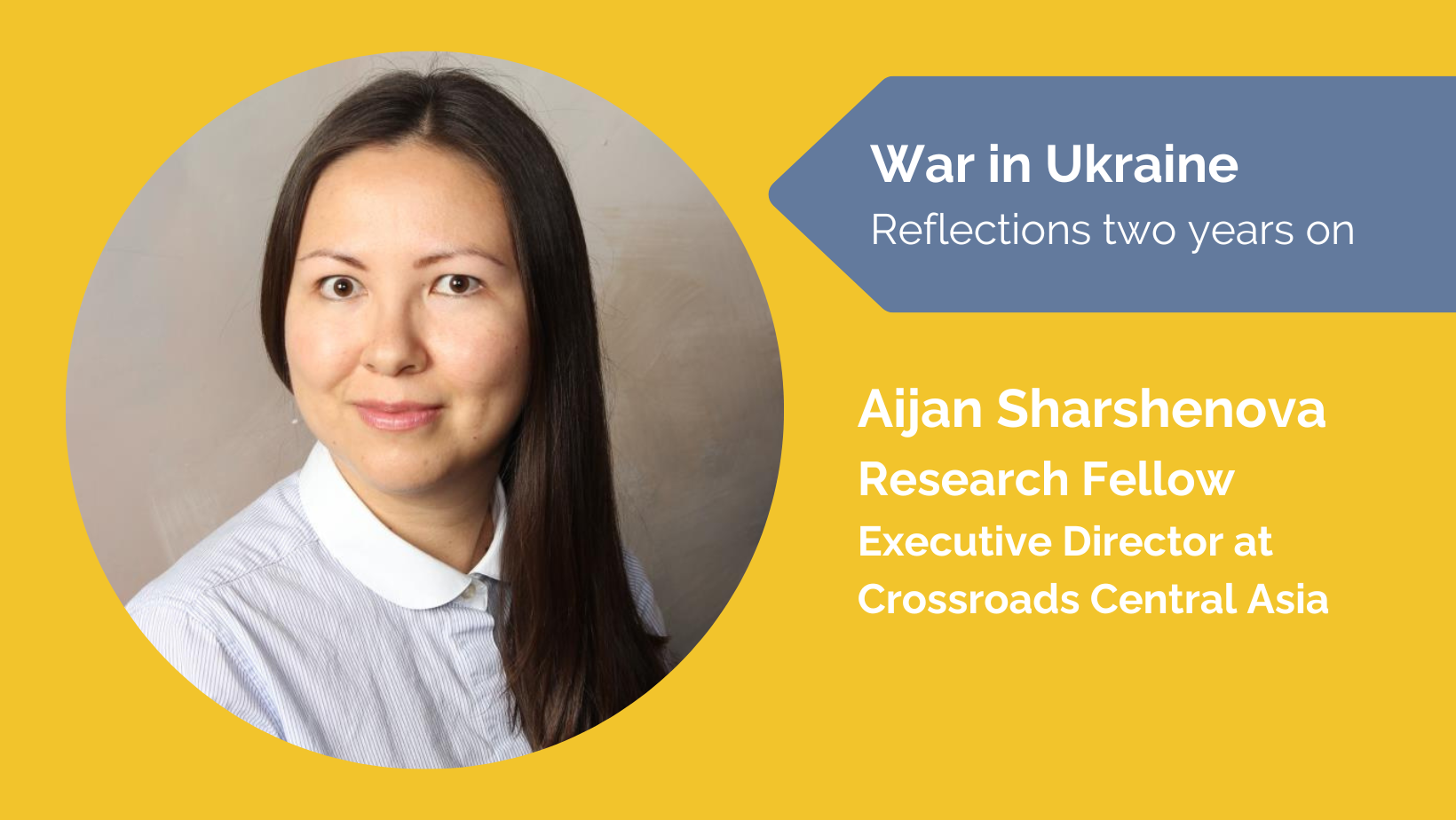Two years into the full-scale Russian invasion in Ukraine, Central Asia finds itself under slightly less pressure to take sides. It seems that both Russia and the West have finally accepted Central Asian republics’ reluctance to unequivocally support one side over another and have left them to be ‘neutral’ on the matter. Nevertheless, it is possible to trace some direct and indirect impacts of the war on Central Asian society, politics and economics.
In the external political domain, international politics is still a dynamic balancing act for Central Asia. The republics’ leaders have to continue cooperating with Russia without alienating the rest of the world.[1] Secondary sanctions remain a very real threat, but the extent to which this threat provides strong leverage is questionable given the limited trade the region has with the European Union (EU) and the USA, the key driving forces behind anti-Russian sanctions.[2]
In terms of economic development, there has certainly been a reinvigoration of Russian-Central Asian economic relations, but there also exists a continuous danger that Russia’s war economy might result in an economic crisis domestically, which might have a ripple effect impacting on Central Asia too.
In the regional political domain, the war in Ukraine has become a part of everyday news. As each country in the region grapples with their own internal political struggles, energy and food security issues, the war is not something that stays at the top of the agenda.
However, those in the region face another issue connected to the ongoing conflict, that is – the growing level of disinformation and misinformation. As a region where Russian is either the second or third most-frequently used language, any Russian-language information about the war finds its way into the Central Asian information spaces. And, this is not necessarily limited to the war in Ukraine only – Russian conspiracy theories of any kind spread freely via social media platforms.
Central Asian governments have adapted their narratives and policies to make the most of the current geopolitical situation, seeking benefits from all parties involved and avoiding any negative repercussions through a declared neutrality. To what extent this neutrality is genuine is difficult to assess due to the closed nature of the states. What the majority of the region’s population thinks about the war is even more obscure as reliable public opinion polls are still lacking two years into Russia’s full-scale invasion into Ukraine.
Dr Aijan Sharshenova is a FPC Research Fellow.
[1] Aijan Sharshenova, Understanding Russia’s Central Asia policy, Crossroads Central Asia, September 2023, https://crossroads-ca.org/understanding-russia-s-central-asia-policy/
[2] Filippo Costa Buranelli, Central Asia and Secondary Sanctions: The Tight Rope of Compliance, ISPI, November 2023, https://www.ispionline.it/en/publication/central-asia-and-secondary-sanctions-the-tight-rope-of-compliance-151442
Disclaimer: The views expressed in this piece are those of the author and do not reflect the views of The Foreign Policy Centre.

